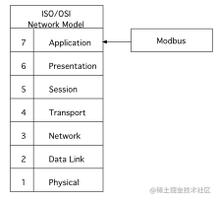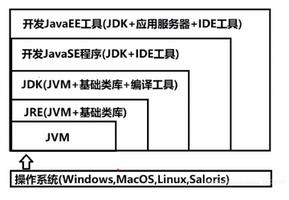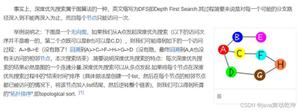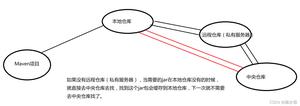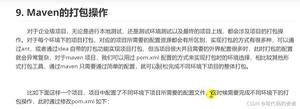@Java知识点ImmutableMap

- 创建ImmutableMap
Map<String,Object> immutableMap = new ImmutableMap.Builder<String,Object>().build();- 在创建时放值
Map<String,Object> immutableMap = new ImmutableMap.Builder<String,Object>() .put("k1","v1")
.put("k2","v2")
.build();
- 创建后不可变
immutableMap.put("k1","v3");//会抛出java.lang.UnsupportedOperationExceptionImmutableMap中key和value均不能为null,放入null值会抛出NPE
ImmutableMap的使用场景
1.适合
- 确定性的配置, 比如根据不同的key值得到不同的请求url
- 写单元测试
2.不适合
- key, value为未知参数, 可能有null产生的情况
3.优化大量的if else
优化大量的if else语句:/**
* 定义一些常量Map<?,?>
*/
interface ConstantMap {
Map<Integer, String> INTEGER_STRING_MAP = new ImmutableMap.Builder<Integer, String>().
put(30, "IP地址或地址段").
put(31, "端口号或范围").
put(32, "IP地址或地址段").
put(33, "端口号或范围").
.build();
}
//另一种写法
//Map<Integer,String> activityMsgMap = ImmutableMap.<Integer,String>builder().
// put(30, "IP地址或地址段").
// put(31, "端口号或范围").
// put(32, "IP地址或地址段").
// put(33, "端口号或范围").
// build();
/**
* guava ImmutableMap 测试实例
*/
public class ImmutableMapTest {
public static void main(String[] args) {
immutableMapTest();
}
/**
* 测试 guava ImmutableMap
*/
private static void immutableMapTest() {
Integer key = 30;
System.out.println("key = " + key + "的提示语是:" + ConstantMap.INTEGER_STRING_MAP.get(key));
}
}
4.ImmutableMap.of
/** * Returns the empty map. This map behaves and performs comparably to
* {@link Collections#emptyMap}, and is preferable mainly for consistency
* and maintainability of your code.
*/
public static <K, V> ImmutableMap<K, V> of() {
return ImmutableBiMap.of();
}
/**
* Returns an immutable map containing a single entry. This map behaves and
* performs comparably to {@link Collections#singletonMap} but will not accept
* a null key or value. It is preferable mainly for consistency and
* maintainability of your code.
*/
public static <K, V> ImmutableMap<K, V> of(K k1, V v1) {
return ImmutableBiMap.of(k1, v1);
}
/**
* Returns an immutable map containing the given entries, in order.
*
* @throws IllegalArgumentException if duplicate keys are provided
*/
public static <K, V> ImmutableMap<K, V> of(K k1, V v1, K k2, V v2) {
return new RegularImmutableMap<K, V>(entryOf(k1, v1), entryOf(k2, v2));
}
/**
* Returns an immutable map containing the given entries, in order.
*
* @throws IllegalArgumentException if duplicate keys are provided
*/
public static <K, V> ImmutableMap<K, V> of(
K k1, V v1, K k2, V v2, K k3, V v3) {
return new RegularImmutableMap<K, V>(
entryOf(k1, v1), entryOf(k2, v2), entryOf(k3, v3));
}
/**
* Returns an immutable map containing the given entries, in order.
*
* @throws IllegalArgumentException if duplicate keys are provided
*/
public static <K, V> ImmutableMap<K, V> of(
K k1, V v1, K k2, V v2, K k3, V v3, K k4, V v4) {
return new RegularImmutableMap<K, V>(
entryOf(k1, v1), entryOf(k2, v2), entryOf(k3, v3), entryOf(k4, v4));
}
/**
* Returns an immutable map containing the given entries, in order.
*
* @throws IllegalArgumentException if duplicate keys are provided
*/
public static <K, V> ImmutableMap<K, V> of(
K k1, V v1, K k2, V v2, K k3, V v3, K k4, V v4, K k5, V v5) {
return new RegularImmutableMap<K, V>(entryOf(k1, v1),
entryOf(k2, v2), entryOf(k3, v3), entryOf(k4, v4), entryOf(k5, v5));
}
// looking for of() with > 5 entries? Use the builder instead.
Map<String, Integer> typeMap = ImmutableMap.of( "1", 1,
"2", 2,
"3", 3,
);
注意:of方法入参最多只能有5对,如果添加的数据超过5对,需要改用builder方法.
以上是 @Java知识点ImmutableMap 的全部内容, 来源链接: utcz.com/z/516463.html

